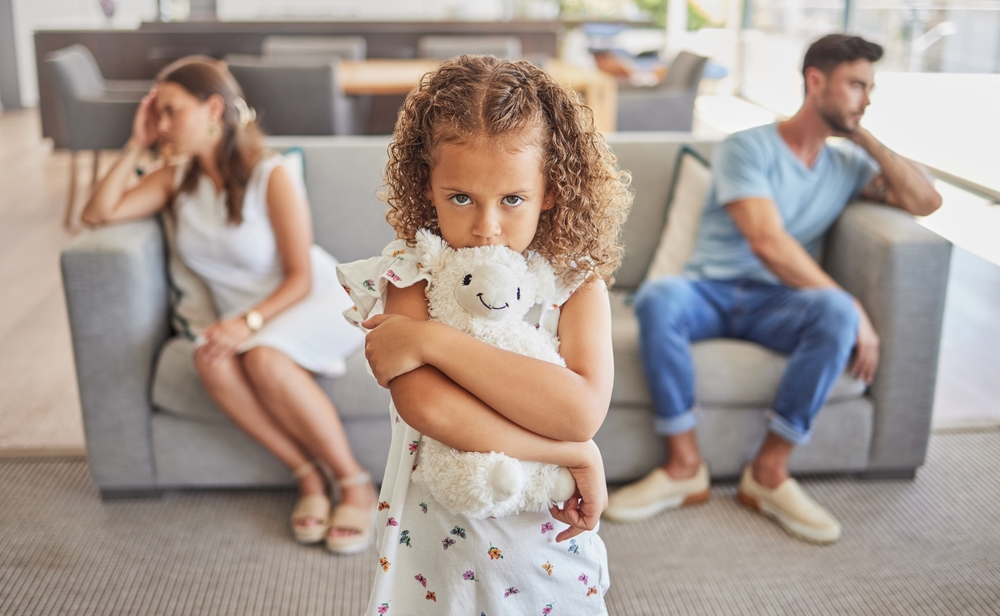
Relationships with Children After Separation
It can be difficult to manage the post-separation relationship with children, especially amid the upheaval of a separation. There are three factors that impact a child’s well-being during and post-separation: the quality of parenting they receive, the quality of parent-child interaction and the severity of and the child’s involvement in conflict. A parent’s actions and the type of relationship they foster with their child have a direct impact on the child’s well-being, especially on the other side of a separation. In looking to maintain a positive post-separation parent-child relationship, the three areas of focus are managing change, maintaining stability and embracing flexibility.
Parenting Coordination can be an essential service in this context. A parenting coordinator in Calgary can help manage these changes, ensure stability, and facilitate flexibility to support a healthy parent-child relationship.
Managing Change
Children are adaptable, however, they may still need help navigating change. This is where you, as a parent, can be there for them. Children need to know that they are loved by both parents, and that they do not need to choose between parents. Additionally, children also need to be kept out of any conflict. The research is very clear that conflict directly harms children. This does not mean keeping them in the dark. Rather, allow them to ask questions and help them understand what is going on at an age-appropriate level. Answering their questions might help start a conversation about how they are feeling. Having these big conversations with your children will not only help them work through what has happened, but it will also improve lines of communication between the parent and child and show that you are still there and you are still listening.
Some parents may feel that the separation has negatively impacted their relationship with their child. It is important to keep in mind that your child may be masking their fear with anger. They may fear that they will lose both parents, or that they may have to choose one parent over the other. If they are older, they may feel the need to parent their parent. Regardless of where this fear is coming from and how it manifests, keep the lines of communication open.While you are helping your child adjust and navigate the changes that come with separation, try not to minimize the changes you yourself are experiencing. Just like children, parents are often overwhelmed following separation. In some cases, parents are unable to see that their child needs support because, as a result of their own stresses, they have lost touch with their child’s needs and feelings. Research has shown that when parents are able to effectively cope with the situation, children demonstrate improved long-term adjustment post-separation. If you are struggling, consider looking into external support such as counselling or support groups. These programs can be useful for both parents and children in coping with the challenges and changes that stem from separation.
Maintaining Stability
The adjustment process for children happens in stages rather than all at once. It is important to keep this in mind as your relationship with your child may change as your child adjusts. While you cannot dictate your child’s adjustment process, you can control your presence in their life. Continue to engage with your children. Take an interest in their life, ask about their friends and their hobbies; take the focus off the separation and engage with your child. You can attend your child’s activities to show your support. In an ideal world, both parents could attend activities, but this is not always possible for separated families. Keeping your child’s well-being in mind, try to find a way for each parent to attend your child’s activities based on what works for your family.
It may not seem like there is any stability post-separation. However, from your child’s perspective, stability can be found in the fact that they still have both parents. It is well documented that children do best after separation when they feel loved and cared for by both parents and when they are able to have meaningful relationships with both parents. As such, each parent should endeavour to support their child’s relationship with their other parent and avoid making the child feel that they have to pick a side. You want to ensure that you are not placing your child in a loyalty bind. This is where the child does not feel encouraged to love each parent. Research shows that children with good relationships with both of their parents have better relationships with each individual parent.
Ensure that you, as well as third parties, are not making negative comments about the other parent in front of the children. Avoid asking your children to keep secrets from the other parent or using the children to relay information between parents. This behaviour pulls the child into the conflict, which is detrimental to their well-being.
Guilt resulting from the separation and parents being generally overwhelmed can cause the structure to lapse following separation. However, it is important to maintain guidelines and effective discipline for children, as this increases predictability. Routine and structure help children better adjust to all of the changes happening around them.
Embracing Flexibility
As important as structure is, the post-separation parent-child relationship must also be approached with an element of flexibility. There are now two different households with two different parents and two different parenting styles. Children do not always need to have the same rules, routine and structure in both homes, especially if they are older. Keep in mind that different does not equate to being negative. As always, ensure your child is kept out of the conflict and avoid persistently asking them about what is going on in the other parent’s home.
Fluidity between the homes can also help children adjust. For example, if a child finds comfort in a favourite toy, allow them to bring it back and forth between homes. In approaching your relationship with your child, flexibility can also be an asset. Consider who your child is and where they are in the coping process and try to tailor your responses and reactions appropriately.
Coordination between parents can greatly assist in managing this fluidity, a parenting coordinator in Calgary can provide invaluable support in ensuring that both parents are on the same page, further helping the child adapt to their new circumstances.
Legal Support from Family Law Lawyers in Calgary
Navigating your relationship with your child post-separation can be complex. If your co-parenting relationship is proving to be a challenge and is impacting your relationship with your child, the experienced Parent Coordinators at Jones Divorce & Family Law in Calgary can help. Our parenting coordination service in Calgary helps high-conflict parents manage their parenting duties effectively. A coordinator assists in decision-making and, when necessary, makes critical decisions, ensuring commitments and communication are upheld for the child’s best interest.
Jessica Lypkie, Family Law Student
The content provided in the blog posts of Jones Divorce & Family Law is general information and should not be considered legal advice. Please contact a lawyer for legal advice tailored to your specific situation. All articles are current as of their original publication date.







